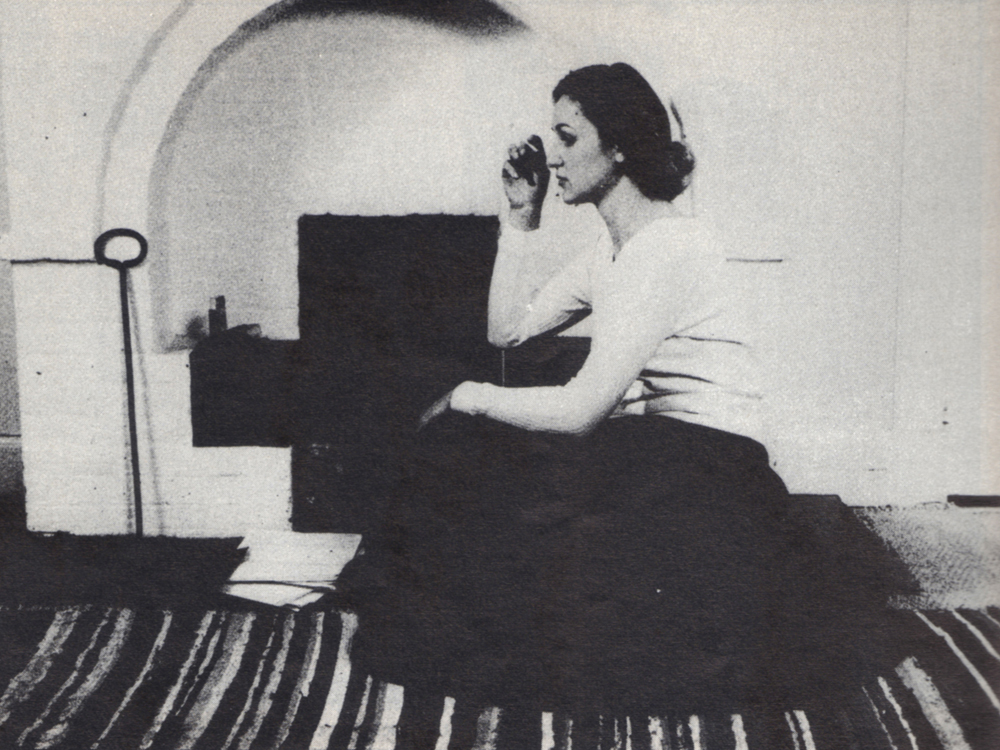From the mid-1970s to the early 1980s, Belgian theatre director, author and actor Jan Decorte (1950) made two feature films and a few television documentaries for Belgian public broadcasting. For its fifth Seuls film night on Thursday 21 November 2019, Sabzian will show Decorte’s second feature film, a film adaptation of Henrik Ibsen’s Hedda Gabler. As in his first film Pierre – which shows us an adult man still living with his old widowed mother – Decorte’s cinema is characterized by cinematic soberness and dedramatized theatricality, similar to Rainer Werner Fassbinder’s early films.
With a short introduction by and an extensive conversation with Jan Decorte after the screening
Jan Decorte starts as a theatre maker and actor in the 1970s with theatre company Het Trojaanse Paard, where, in the early 1980s, he meets his life partner and permanent collaborator Sigrid Vinks. In 1981 Jan Decorte directs Friedrich Hebbel’s Maria Magdalena for the Kaaitheater Festival. Following that play, Decorte is appointed artistic leader of the company in 1982. The non-profit’s registered office is then transferred to Brussels and Het Trojaanse Paard becomes HTP. In 1987 the name of the company changes into Jan Decorte en Cie (later, in 1994, a last name change turns it into Bloet). From then on Decorte writes pieces in which classical texts are reduced to their essence, poetic condensations in his own childlike language. “Despite the disruptions he caused in his own joys and sorrows”, Marianne Van Kerkhoven wrote about Jan Decorte, “there’s a clear ‘canyon-leaping’ line running through [his] oeuvre, namely that of a quest for an ever greater simplicity, for theatre’s essence. Isn’t it every artist’s great desire to pass through their own repetitions so deeply, so intensely, to reach the final goal of purity and simplicity?”
In Chantal Akerman’s Jeanne Dielman, 23, quai du commerce, 1080 Bruxelles, Jan Decorte played the role of the protagonist’s son. Following the release of her Golden Eighties, he interviewed Akerman for the BRT. He had previously interviewed Jean-Luc Godard for the same Belgian Dutch-language public broadcaster.
Seuls. Singular Moments in Belgian Film History is a series of film programs hosted by Sabzian at KASKcinema. These programs are accompanied by the publication of unique texts by Belgian filmmakers and writers on Sabzian’s website. It is often said that cinephiles don’t know or are rarely appreciative of their own national cinema. Film critic Adrian Martin “observe[s] a very intriguing dimension of cinephile thought: namely, the usually feisty way it negotiates a fraught relation with the cinephile’s own national cinema. Indeed, I sometimes think I can spot a cinephile by the intensity of their hatred for their national cinema.” With this series of film evenings, Sabzian aims to chart the wayward landscape of Belgian cinema with images, sounds and words, by means of an affectionate countermovement.


